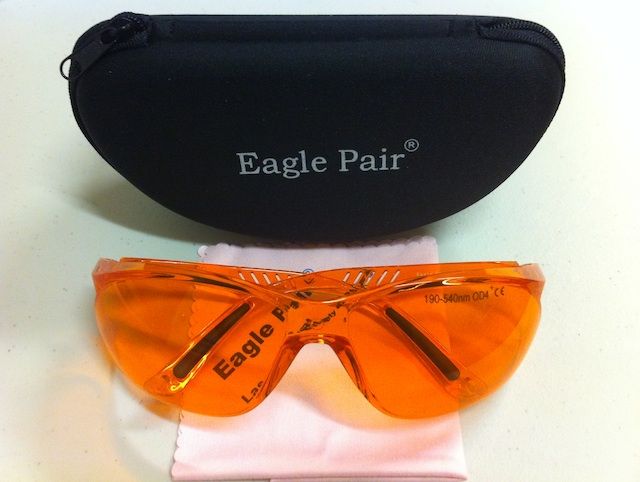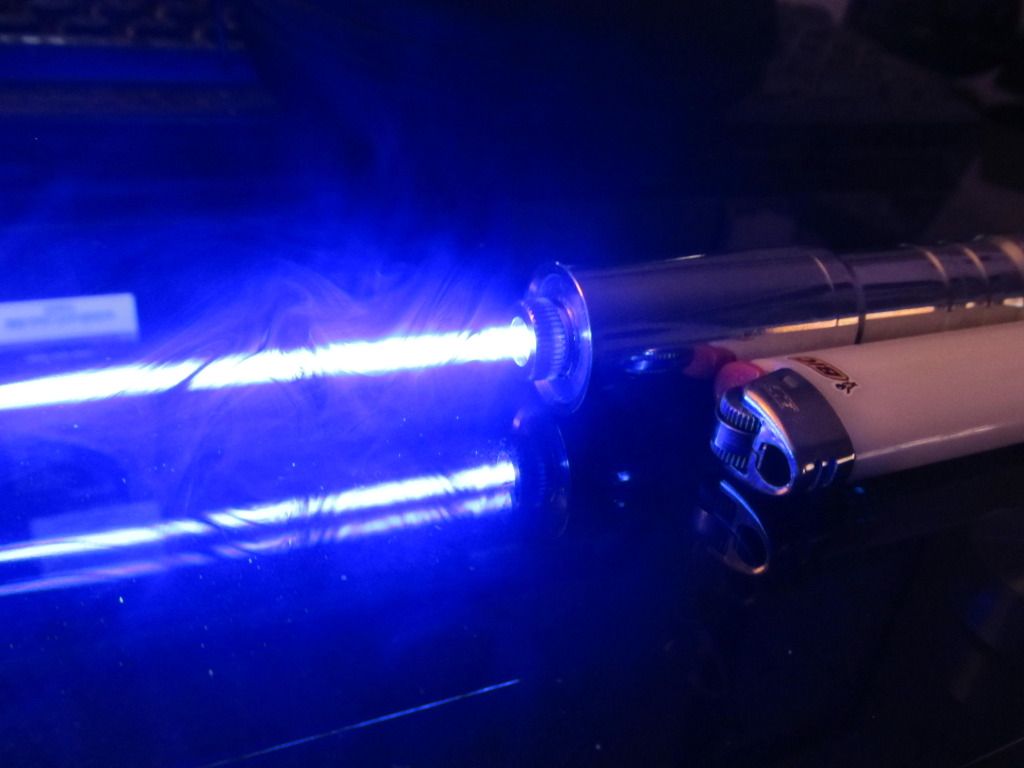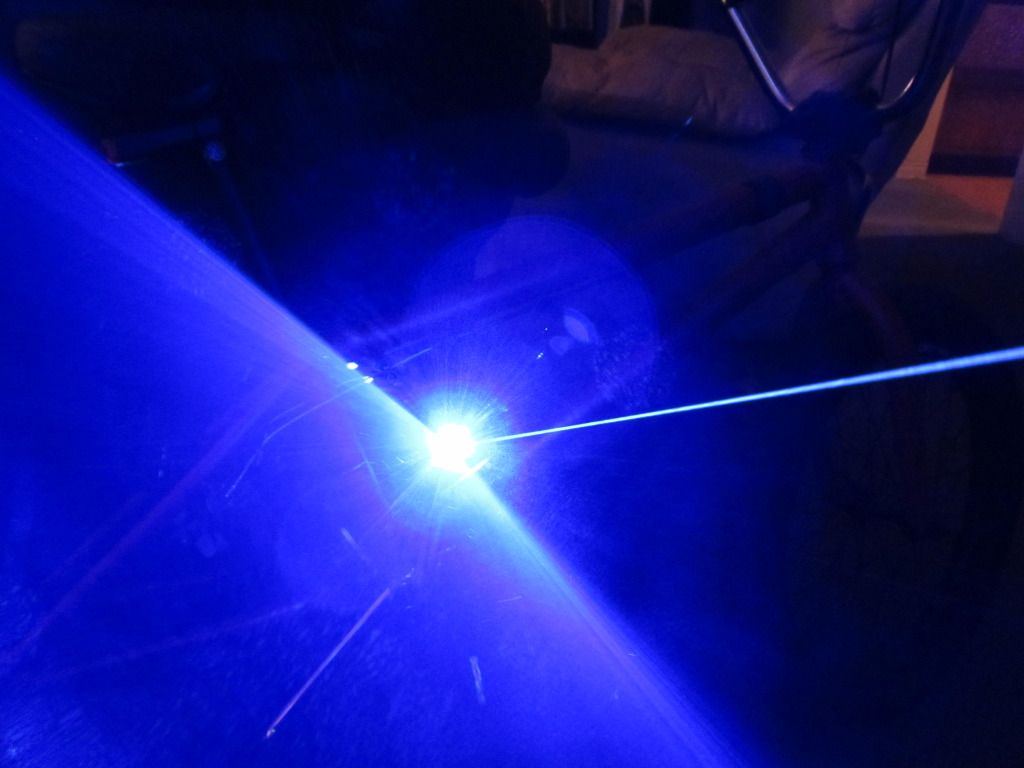Short answer: pretty safe with your eyes closed, if you can close them in time. But even with your eyes closed, a sustained direct hit can cause permanent damage.
The Sun, our closest star, is far enough away that it's light is practically parallel. And the strength of this light, at least on a mid-summer's day, is bloody concentrated and strong, per square centimeter. Most, if not all of us understand the dangers of staring into the Sun. The light, being parallel, enters the lens of our eye and focuses onto a tiny, tiny dot on the back of our eye (retina.)
The light receptors back there cannot handle this kind of concentrated light for very long. Maybe a second or two at the most. When we look away, we still see streaks of the Sun still on the back of our eye, that's because it takes a while for the rods and cones, now saturated, to recover.
If we continued staring at the Sun, it would cook those receptors lining our retina, and they would never recover nor work, again.
One of the most dangerous things about the properties of laser light, compared to other sources of light, is that the light is, more or less, parallel. Also, a laser <5mW is said to be as concentrated as the Sun, if not more. When a <5mW laser sweeps across our open eyes, it will cause the same kind of damage (be it permanent or temporary) to the backs of our eyes, in only a fraction of the time it takes the Sun.
Our brains aren't stupid. They can often tell when a light is too bright, and after many milliseconds, we respond by shutting our eyes.
Another problem with laser light, is it's single color, sometimes outside of the visible range, perhaps near visible, and in some cases, contain ultraviolet and infrared light. This light may not register in our brains as hurting or causing damage. Thus, in some cases, people are damaging their eyes and their brains don't even know it until it's too late.
Now, add the possibility that the laser may be several 1000s of mW, because as most of us know, 1000mW = 1W, and there are plenty of >1W lasers in the field. If this high power light even brushes across our eyes for a moment, our eyes don't even have a chance. Wherever that tiny spot focuses on our retina, is cooked for sure.
Now, let's say >2000mW of light hits our eyes, while they're closed. Light is still entering our eye. Thankfully, it is not parallel light focusing onto a tiny spot. It is broken up light. But it is still a great deal of light, and can saturate our receptors (rods and cones.) Given enough exposure time, I suspect even this kind of light can cause permanent damage.
Under the right circumstances, we can be blinded by strong laser light faster than your brain can close your eyes. Eye protection is a must.







